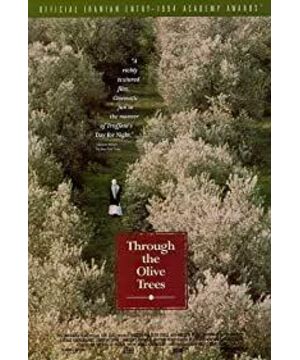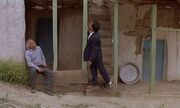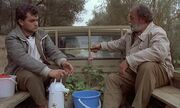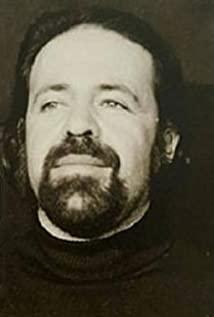A film crew shot the film locally and chose Hussain and Taheri as the male and female protagonists. Hussein once pursued Taheri, but because he did not have a house, he was not recognized by Taheri's family. However, the earthquake destroyed everything, so Hussein took the opportunity to film and once again launched a bold pursuit of Taheri.
The reason why the story of the film is so simple is that the director's intention is not to tell a story, but to restore life. Therefore, in addition to the main story line of Hussein's pursuit of Taheri, other characters are also the protagonists of the film. The children who were still studying and quizzing in the tent would walk nine kilometers to watch the filming. Widows who have lost their men will choose the bathhouse farther away, just because it is quieter there. The old man who cooked for the crew calmly talked about his dead wife and the idea of not continuing the string. And Taheri's grandmother kept ranting about her granddaughter's disobedience. The camera does not comment on them, just silently watching, but there is humanitarian concern in this watching.
In addition to people, there are many people living on this land, sheep grazing, hens under the eaves, cows breaking into the shooting scene, even olive trees, and the wind blowing through the olive trees. This is a complete living environment, and like the desert sand in western films and the concrete forest in urban films, it constitutes the visual symbol system of this film.
In terms of shooting techniques, the director's consistent long shots and slow rhythm are self-evident. There is a small detail in the film that can give a glimpse of the director's attitude to restore life. The pots of flowers at the filming site had obvious symbolic meanings, but the director said it directly through Hussein's mouth, "We came here. , the flowers are flourishing and blooming, and the flowers bless us." While abandoning the symbol, it is close to life itself.
Hussain is a very interesting character. He used to be a mason, but because of the failure of his pursuit of Taheri and the occurrence of the earthquake, he vowed never to touch bricks and tiles again. Even the plaster bag he had to carry during the filming was quite unreliable. There are critics. This made Mrs. Siva in the crew very uncomfortable with him, sneering, and seemed to think that he was deliberately avoiding heavy work, because Hussein was originally a errand in the crew. In the film, it seems that only the director understands him, his choices and the dignity of the life behind him. In fact, at first we also thought that Hussein was a young man who was not doing his job properly, but his persistent pursuit of Taheri, and the simple but correct reason behind this pursuit (in essence, his view on the inequality of wealth in society), made him We changed our minds. Perhaps his white shirt is a reflection of his attitude towards life.
Behind his persevering pursuit is the persistence and bitterness of small people, just like the "Xing" living at the bottom of the society in Stephen Chow's movie, just like the humble little tramp in "City Lights". In his rambled words, there is the wisdom and poetry of life. "Sometimes you pour tea, sometimes I pour water, that's how life is." The poetry that Abbas found in the daily life of this kind of firewood, rice, oil and salt, and the relentless pursuit of beauty by the entire nation displayed in ordinary people are the most precious treasures this film brings to us. On the other hand, in the early works of some domestic directors, they attracted the attention of the West with their backward and closed living conditions, and they used vulgar national wonders to attract the attention of the West. It is really hard to admire.
"I swore never to be a mason again, and if I have to do it, it's just for you." Compared with the previous situation where he was determined not to touch masonry, this confession is a bit rascal and a bit cute. "If you dare not say yes, then turn the page and say answer me", and this is the most subtle and unpretentious confession I have ever seen, better than the elaborate design of fiddling with candles and flowers downstairs, better than in a movie An unexpected marriage proposal in a festival or a competition comes with warmth, life, and freshness and naturalness.
But Taheri didn't say a word from beginning to end, no matter how stubborn Hussein was, she had the same persistence as Hussein. After the filming ended, Taheri was walking home, and Hussein was still in hot pursuit, babbling along the way. When Taheri walked down a zig-zag path and came to the tree at the top of the slope, she didn't stop but started to descend and slowly disappeared from the picture, we couldn't help but feel regretful, thinking that this was the result.
But Hussein continued to chase down the winding road and down the hillside. This time, the camera did not follow the past, but stayed on the hillside, watching the two people get farther and farther away and became smaller and smaller. This is the perspective of the director following Hussein's attention, and it is also the sympathetic gaze of Abbas and our audience. It's the stare of this big vista that makes this shot one of the most veiled in cinematic history. Many netizens bluntly said that the last shot turned the movie from a four-star recommendation to a five-star classic.
Has Hussein succeeded? Did Taheri stop for him? Maybe we can see the lightness of Hussein's footsteps as he returns, maybe we can detect a sudden upbeat tune in the music.
View more about Through the Olive Trees reviews








